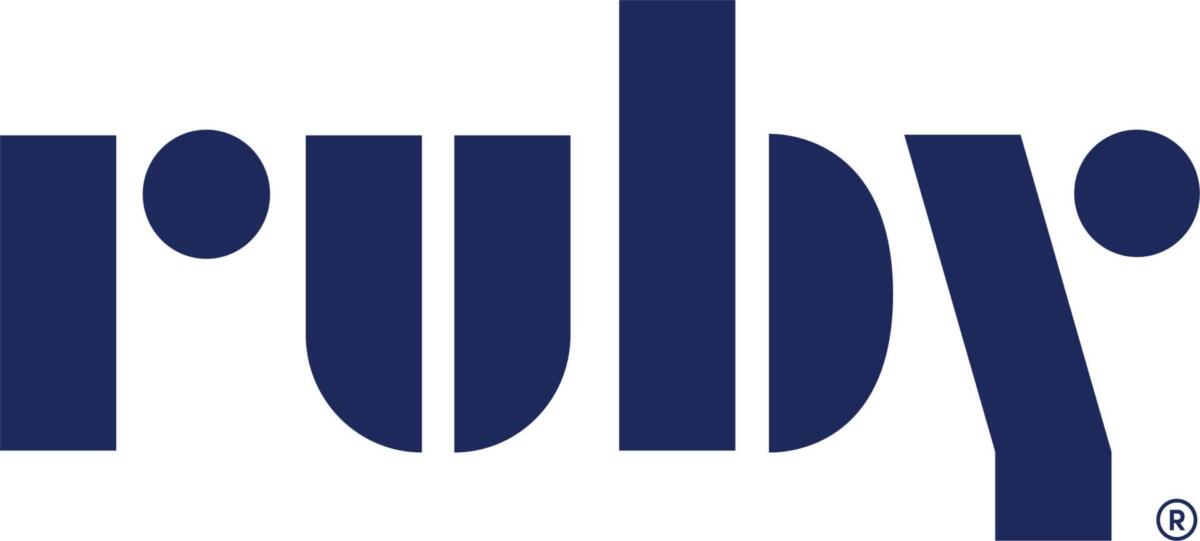
Photo by Alena Darmel from Pexels
Affiliate marketing—like spiders or anchovies—sometimes gets a bad rap. Plenty of people out there think affiliate marketing is just another get-rich-quick-scheme.
News flash: it’s not.
Far from it, in fact. Affiliate marketing is actually a commonly used and valuable tool that can help businesses and marketers alike grow their audience and increase revenue—with little upfront costs and minimal risk. All it takes is a little bit of work on the front end (and the right know-how, of course!)
In this article we’ll explore what affiliate marketing is, what differentiates it from other strategies, and whether or not it’s the right fit for you or your business.
(If you’re interested in learning more about Ruby’s Affiliate Program, scroll to the bottom or click here.)
What is affiliate marketing?
Affiliate marketing is when a business offers an incentive, usually money paid through commission, to marketers who promote that business’s product or service.
Affiliate marketing is widely popular in the e-commerce space, where products bought and sold online are promoted through social media posts, blog campaigns, review sites, and even email blasts. That said, affiliate marketing isn’t just for retailers—it can also be a great strategy for many service-oriented businesses, such as IT firms, marketing agencies, or (in our case) customer communication solution providers.
Need an example? It just so happens I have a craving for seafood right now, so let’s look at affiliate marketing through that lens.
Let’s say you sell frozen wild-caught seafood through your e-commerce store, and you want to generate more traffic to your website in the hopes of converting some of that traffic into paying customers. You invest in digital advertising, focus on your website’s search engine optimization, and promote your products on social media—but still could use a little more exposure to really hit your traffic goal.
Fortunately, affiliate relationships can complement your already established marketing strategy without adding high costs to your budget.
An affiliate program allows you to find the right companies or influencers to promote your product over their channels. An example for your seafood company would be a food blogger, social media influencer, or even a business that sells kitchen gadgets and tools. Anybody that complements your company with a similar target audience can be a great candidate.
Affiliate marketing in action
- Your company starts an affiliate program, and you get your favorite food blogger to sign up. Nice work!
- Next, they start promoting your product using your affiliate link, which tracks whoever clicks to your website through that link.
- As a result, you see an increase in traffic for the term “mahi mahi” because the blogger posted a Blackened Mahi Mahi recipe linking to your product using your affiliate links.
- That link tracks who makes a purchase, and you pay a small commission to the food blogger for bringing you new business.
- Your delicious Mahi Mahi speaks for itself, and hopefully, your new customer will become a returning customer.
Now imagine that you’ve done that same process with several additional influencers who can promote your business for you. It’s a win-win! Your influencers have the potential to earn income through linking to your products while your company sees an increase in traffic and brand awareness.
What affiliate marketing is not
Affiliate marketing vs. digital marketing
Digital marketing encompasses everything a business can do (and you might be already doing) to promote itself online. From SEO to paid online advertising, digital marketing incorporates all your efforts to bring more traffic to your website.
Digital marketing includes efforts such as:
- Websites
- Blogging and content marketing
- Social media posts and advertisements
- Email campaigns
- Pay-per-click campaigns and other paid advertising efforts
- Search engine optimization (SEO)
Affiliate marketing and digital marketing can work hand-in-hand, but they’re distinct in terms of who manages them and what channels they use. With affiliate marketing, you increase your reach by having someone else do your marketing for you, in addition to your own efforts. Affiliates can use many of the same digital marketing efforts to promote your business and bring you a wider audience, especially if their niches complement your brand, but they’ll probably use other channels (such as their own email lists and networks) to connect with people you couldn’t reach otherwise.
Affiliate marketing vs. influencer marketing
Influencer marketing is when a brand or a company enlists someone with a large, engaged audience to promote the brand or company’s offerings. Influencer marketing often takes the form of paid product placements. For example, Company A pays influencer @SoandSo $10,000 for three social media posts that showcase Company A’s product.
Influencers typically have massive audiences. Many work with multiple companies—often large companies with national or international presences. They may specialize in bringing attention to the brands they promote, building trust and authenticity around the brands, or converting interested audiences into buyers.
There are two important distinctions between affiliate marketing and influencer marketing:
- Scale: Influencers typically communicate to hundreds, thousands, or even millions of people at a time. Affiliates tend to communicate with prospects on a more individualized basis.
- Payment terms: Businesses hire influencers upfront, and the parties typically agree to a lump sum. The relationship wouldn’t be practical or cost-effective otherwise. No business wants to pay someone $150 every minute for every single sale they bring in—it’s easier to settle it all in advance.
Affiliate marketing vs. referral marketing
Referral marketing allows you to use your existing customer base to generate positive word-of-mouth advertising. With referral marketing, you offer an incentive to your current customers in exchange for recommending your business to others in their network.
One key difference here is that referral marketing is offered directly to existing customers. You have to be a paying customer to be able to join the referral program.
Affiliate marketing vs. multi-level marketing and pyramid schemes
And now for the big one: multi-level marketing companies. These often-dubious operations depend on “ambassadors” who sign up (usually paying an upfront cost) to sell and market a brand. There’s typically pressure to enlist new sellers to earn higher commissions, making recruitment more important than selling or promoting the products themselves.
Multi-level marketing isn’t illegal, but MLM companies toe a fine line. Many have characteristics in common with pyramid schemes—which are illegal. Both business models often prey on sellers’ economic and social circumstances, promising dreams of working from home and earning full-time income for part-time work—promises that seldom pan out.
Unfortunately, many MLMs (and even some pyramid schemes) use the label “affiliate marketing” to lend themselves credibility and mislead their members. Let’s make it clear: actual affiliate marketing is not an MLM or pyramid scheme. Affiliate marketing programs do not require upfront investment, nor do they hold affiliates to meet quotas or recruit others.
If you’re ever concerned a so-called affiliate program might be an MLM or pyramid scheme, here’s an easy way to tell the difference: Are they asking you for money? If you need to pay to participate, it’s likely an MLM (or worse).
How to implement an affiliate marketing program (the right way)
You have some leg work to do before launching your affiliate program. Before you begin, you need a few things in place, such as a strong brand identity, an established marketing plan, a resource center for your affiliates, and measurable goals to show your affiliates what success looks like.
Big companies have the advantage of personnel and a large budget behind them. Large brands can launch and manage their own affiliate campaigns (Amazon’s program, for example, is Amazon Associates).
Small and medium-sized businesses aren’t out of luck, though. Various platforms out there can help you launch and manage an affiliate program, track commissions, and even pay your commissions. At Ruby, we use PartnerStack. Other options include ShareAsale, LinkConnector, CJ Affiliate, and Affiliate Future.
Unless you’re ready to create a platform to manage your affiliate program, including building graphics like mobile banners, recruiting and vetting high-quality affiliates, and training those affiliates on how to promote your business, an affiliate marketplace is a great place to start.
Once implemented, your affiliate links allow you to track traffic data and learn which affiliates are doing well and why. All this data can help you make adjustments to your affiliate program to continue seeing growth.
Interested in being an affiliate marketer?
We’ve talked about affiliate marketing from a company’s viewpoint, but what about the marketers?
Believe me when I say that anyone with a computer and an internet connection can become an affiliate marketer!
Affiliate marketing won’t make you a millionaire. That said, it’s possible to find success by adding affiliate marketing to your overall revenue stream.
Here are a few questions to ask yourself before diving in:
- Do you like sales and marketing?
- Do you have a large and active network?
- Do you like collaborating and connecting people to products and services that make their lives easier?
If you answered “yes” to any of these questions, then affiliate marketing might make a great side hustle for you! Again, it doesn’t cost money to sign up to be an affiliate, but keep in mind that some companies have certain criteria (such as follower counts on social media) that affiliates need to meet to participate.
Ruby's Affiliate Program
Are you passionate about seeing small businesses thrive? Do you advise or provide targeted content to SMBs, coach entrepreneurs and owners, or have an active network of founders and business leaders? If so—or if you know someone who could benefit from Ruby’s services and want an extra $150—consider joining Ruby’s Affiliate Program.*
With Ruby’s Affiliate program, everyone wins! Your customers or members receive a special discount on our virtual receptionist and chat services while you earn a reward for each customer you refer our way. Plus, we’ll provide you with lots of helpful tools and content to elevate your status as a thought leader and trusted resource within your community.
How it works—at a glance

$150 incentive for every customer referred to Ruby (paid out after the 21-day money-back guarantee period has passed)

No investment required, and easy implementation

Ruby handles all post-sales processes (such as service, training, support, and billing)
Best of all, you’ll be providing a critical service that addresses your members’ needs.
The program is simple: we assign you a unique promotion code link for your site to track conversions. Ruby then pays you $150 each time you refer a new customer to Ruby. Your community receives a nice discount, and you generate affiliate revenue!
*Please note that Ruby customers are not eligible to participate in Ruby’s Affiliate Program.
Interested in working with Ruby as an affiliate? Click here to learn more.



